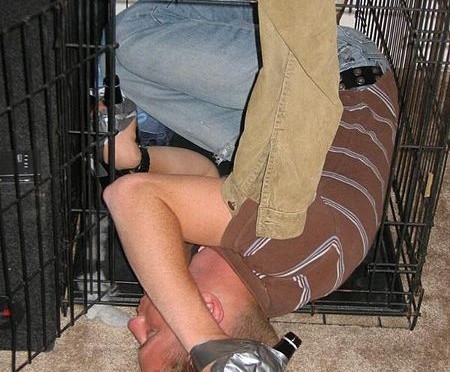A new study examined the concept of extreme drinking in college students, and whether certain behaviors such as “pre-partying” or drinking games influence how extreme the drinking actually gets.
Many of us know that a lot of alcohol is consumed during college, and is often the first time adult children have been away from the protective eyes of their parents.
A new study out of Penn State University, the #9 Party School in the US in 2014 and moving up to #7 in 2015 according to the Princeton Review, looked at whether extreme drinking was more likely on days
![Photo by Smedpull (Own work) [Public domain], via Wikimedia Commons](http://french-paradox.net/wp-content/uploads/2014/12/Edward_40_Hands_After-french-paradox-225x300.jpg)
A couple of definitions in case it’s been too long since your college experience:
- Pre-partying: a.k.a. “pre-gaming” – Constitutes drinking prior to leaving the dorms and going out to the bars or other parties.
- Extreme drinking – According to this study extreme drinking involves drinking so much that BAC levels were 0.16% or greater, enough alcohol was consumed to result in stumbling, or the individual drank enough to pass out (or in the case of the image above, blacking out in a dog crate with a 40 strapped to your hands).
400 college seniors that were at the legal drinking age (21) were observed in this study. 4 different extreme drinking outcomes were measured: 1) drinking at least 8 drinks for women and 10 drinks for men; 2) BAC of at least 0.16; 3) stumbling; and 4) passing out.
Important Findings:
- Pre-partying (without playing drinking games) occurred on 29% of reported drinking days.
- Playing drinking games (without pre-partying) occurred on 10% of reported drinking days.
- The odds of extreme drinking among participants who frequently participated in pre-partying were about 2 to 2.5 times greater than those students who did not frequently pre-party.
- The odds of extreme drinking among participants who frequently played drinking games were about 2 to 4 times greater than those students who did not frequently play drinking games.
- Pre-partying frequency did not predict drinking enough to pass out, but was more likely to result in the other three measured outcomes mentioned above.
- Playing drinking games did not predict that students would have a BAC of 0.16% of more.
- Odds of extreme drinking were higher on days that students pre-partied (1.6-2x greater) and on days that students played drinking games (1.7-1.8x greater).
In summary, taking the whole sample of 400 college students, if they played drinking games or pre-partied, they were nearly twice as likely to exhibit extreme drinking behaviors as students not participating in these events.
For those students who frequently participated in pre-partying or drinking game events, they were even more likely to exhibit extreme
![Photo by Eva Rinaldi from Sydney Australia (Ice Cube Uploaded by russavia) [CC BY-SA 2.0 (http://creativecommons.org/licenses/by-sa/2.0)], via Wikimedia Commons](http://french-paradox.net/wp-content/uploads/2014/12/Ice_Cube_french-paradox-300x200.jpg)
To all those college students pre-partying, pre-gaming, or playing drinking games (I can relate….I, too, went to college), in the words of Ice Cube, “check yourself before you wreck yourself”, and try to take it down a notch.
Source:

